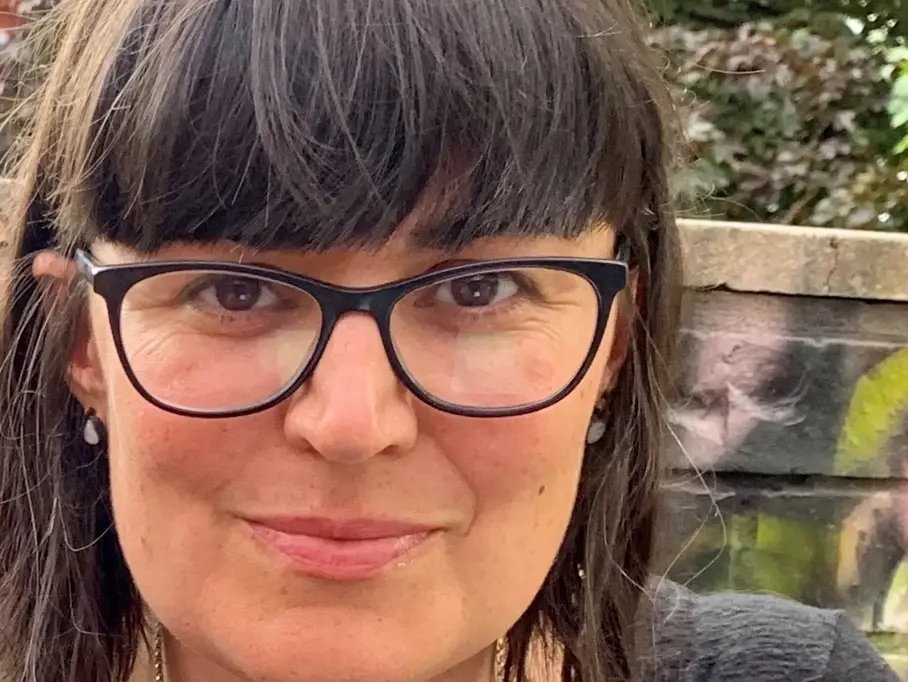
This month’s sustainable journey story is from Efua Uiterwijk, a Sheffield based sustainability consultant.
Efua is also one of the founding members of Sheffield Sustainability Network.
Q: When did you start thinking about sustainability in terms of your business?
I was lucky to be an employee of a business whose CEO/Owner had a bit of an epiphany in 2008 that he couldn’t run a business without making it sustainable. This included everything from transforming the garden to an urban food growing oasis, overhauling the waste management processes, investing in low energy lighting and heating, installing electricity generation, compost toilets, grey water re-use systems, natural ventilation and investigating our supply chain in every area of the operation. After a number of years working as business development manager then operations manager there, I felt that I wanted to learn more about implementing sustainability in a broader context and left to do an MSc in Sustainability, Entrepreneurship and Design. During this I was able to work with other organisations on a consultancy basis which led to working as a sustainability consultant.
Q: What kind of day-to-day challenges have you faced, following this business principle? How difficult did you find it to carve a niche?
One thing I really struggled with as an operations manager was the sheer amount of time that my staff could spend researching sustainable alternatives. I knew that it was expensive time wasting but at the same time, because of our commitment, and the lack of easy to access knowledge around which solutions were genuinely sustainable and which were greenwash, I knew that we had to do some of it. One example that got a bit silly was researching recycled pens for customer use at our reception desk. I think staff time researching cost about double what the pens did, and we had to just stop that. You can easily go around in circles!
One of the ideas behind Sheffield Sustainability Network was to share out some of the load – both in terms of resources undertaking research and in terms of better knowledge and science-based thinking behind sustainable products. When studying and later working in a team doing life cycle analysis, I was often surprised that the “sustainable solution” wasn’t so green after all. Some of those things are really hard to balance as well – do you prefer to have a lower impact on climate change but a worse impact on the health of workers in factory somewhere? How can you make those decisions?
Q: Do you think there is more of a market for sustainable products or in consumers supporting sustainable businesses now than say five years ago?
Yes, definitely, the market research backs that up enormously. I think that people have both woken up to their responsibility and businesses have started to understand that they won’t have a business at all if they don’t address their impact. However, it is still a minefield and lots of people still jumping on the eco bandwagon. Consumers need to be able to trust that organisations are looking at systemic sustainability (that is to say that they aren’t focussing on one element to the detriment of another) and that they are signed up to certifications or standards that are verifiable. We are really hoping that we can help organisations navigate some of that, in collaboration, within SSN.
Q: What advice would you give to someone who perhaps has a similar business to yours who wanted to be more sustainable, but might not know where to start?
When I was operations manager of an SME I did run some talks on sustainable business and I always told people to focus on the elements which were cost saving (using a 5-10 year return on investment) or had direct benefit to staff or customers (such as planting a nice garden where the concrete yard had been). It’s not easy to choose but it is important to understand that your social impact is also a part of sustainability so I would also suggest that signing up to local groups, talking to other businesses in your sector to see if anything can be shared and simple things like litter-picking in your own street have a broader impact than you might think.
This is a low carbon Instadesign website on sustainable hosting.